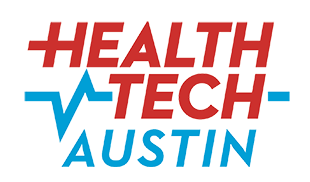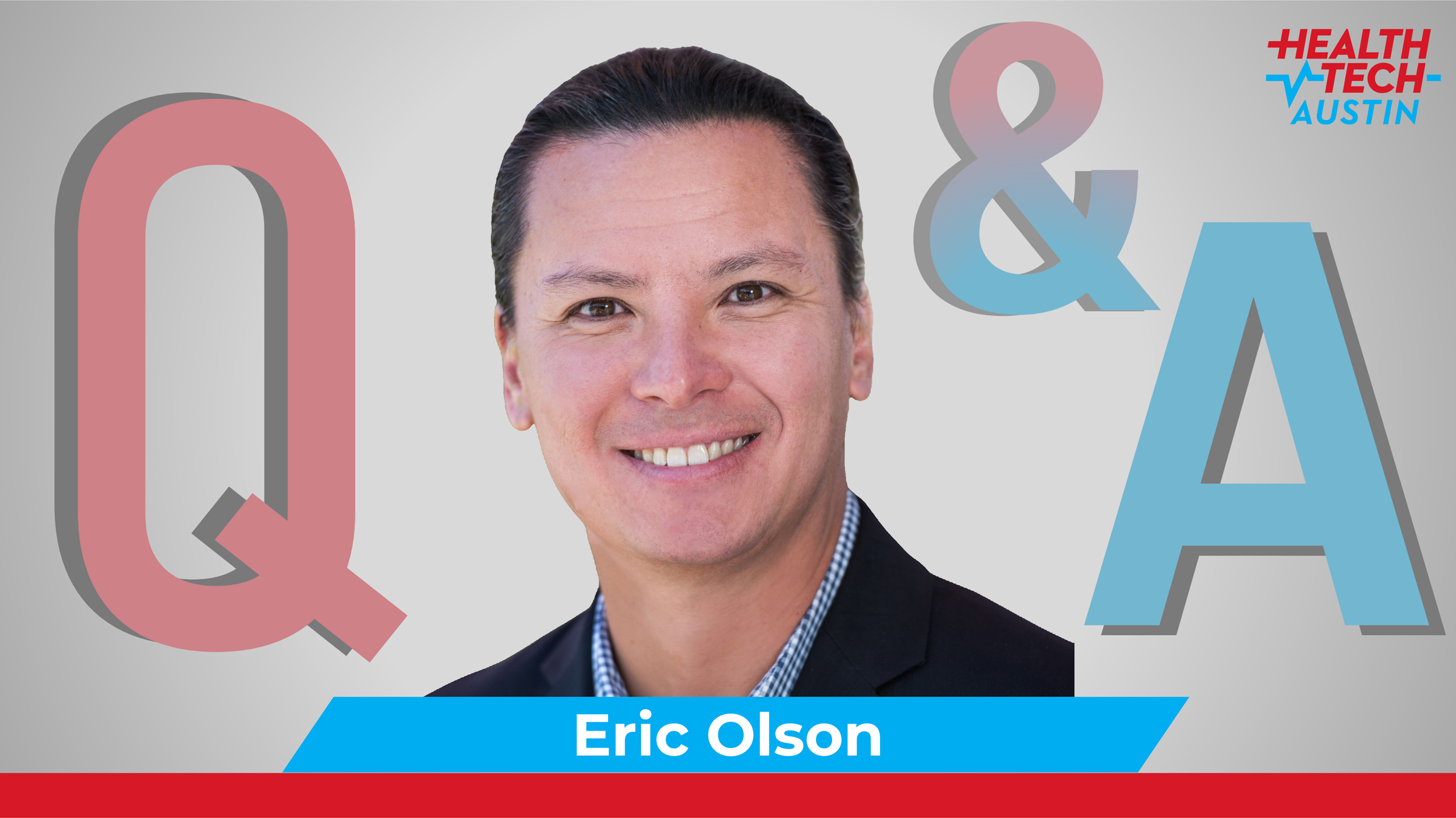Eric Olson
Founder, Chairman, Chief Operating Officer
Babson Diagnostics
Eric is a 20-year veteran of the diagnostics industry. Prior to incubating Babson Diagnostics at Siemens Healthineers, Eric was Siemens’ VP, Portfolio & Product Management, responsible for its $3 billion global product portfolio of central laboratory technologies. He was also responsible for the company’s web properties and $1 billion in e-commerce operations as the global head of Siemens’ clinical laboratory automation and IT business, which advanced from #2 to #1 in market share during his tenure.
Eric earned his BS in Biology from MIT and his MS in Technology Management from the University of Pennsylvania.
HTA - Tell us about your personal and professional background?
I grew up in Pennsylvania and lived up and down the East Coast until the opportunity to lead Babson Diagnostics brought me to Texas. I studied biology at MIT and then worked in software development early in my career. After going to business school, I shifted to the diagnostics industry and have been in the field for 23 years. I led the laboratory automation and IT business for Siemens Healthineers and served as head of product for the central lab business. While at Siemens, I started working on the concept for what later became Babson Diagnostics.
My family has lived in Austin for six years, and the city has enabled us to thrive. Austin is vibrant and growing. There’s a great quality of life, friendly people, and a positive culture.
HTA - Who were your early mentors, and how did they impact your career?
I’ve had many mentors in the diagnostics industry over the years that have shaped my career. Many are people I work with today. We named Babson Diagnostics for Art Babson shortly after he passed away to honor the tradition of science and innovation that he taught me and so many other young diagnostics professionals. I first worked with him as a high school intern, long before I appreciated the central role he had in modernizing clinical diagnostics in the 20th century. He’s always with us as we set out to solve the challenges of using capillary blood from a finger for mainstream blood testing, and we refer to him as we try and make the best decisions we can each day.
HTA - What was the reasoning behind Siemens Healthineers spinning out Babson Diagnostics?
There were several factors that influenced the decision to create an independent startup company rather than take on the market from inside a large, multinational medical technology company. But I think the most important factor was that we recognized the need to create an organization with a customer DNA. We built Babson from the ground up to focus on the human being on the other end of the needle.
We placed a bet that the way to modernize diagnostics needed to start with prioritizing customers, and that having happy and engaged customers would enable all market participants – clinicians, payers, and retailers – to achieve their goals. This required a new kind of company with a specific culture. It was a once-in-a-lifetime opportunity to leave Siemens and create Babson from scratch.
HTA - Why was Austin chosen as the headquarters?
We conducted a far-reaching city search before choosing Austin. Babson was always going to be in a U.S. technology hub, but we looked in all corners of the country before settling on Austin. The things that differentiated Austin were the collaborative culture, the entrepreneurial ecosystem, and the priority on improving access to health care.
Austin’s Chamber of Commerce came to visit us at Siemens, and we met Steve Adler, the mayor at the time, during Startup Week. The welcome we received, especially from the team at the Dell Medical School at the University of Texas, was extraordinary. This just didn’t happen when we visited other cities we were considering. It quickly became apparent that this was the right place for us. Austin had all the right pieces and a strong talent base. We were one of the first companies to graduate from Dell Medical’s incubator known at CoLab. We chose Austin and have never regretted it.
HTA - What surprises you about the health care Industry?
The health care industry is far more complex than any individual can comprehend, so it’s always full of surprises to me. But I’ll take this question as an opportunity to encourage students and young professionals to pursue health care as a career. There is no more satisfying work than developing products and services that help people get and stay healthy. And as an intellectual endeavor, just think of the breadth of innovation opportunities in diagnostics. You get to do biology, chemistry, mechanical engineering, electrical engineering, computer science, and medicine — all without changing jobs. For people who want a job that they can fall in love with and contribute across a broad range of fields, think health care!
HTA - The rise and fall of Theranos sent shockwaves through the health care and technology industries. How has Babson Diagnostics leveraged its technology and commitment to transparency in the marketplace compared to Theranos' methods?
The Theranos saga was an embarrassment to our industry, primarily because of the lack of integrity. But if you go a layer deeper to the technological level, we also believe that Theranos was trying to solve the wrong problem. For decades, companies have tried to miniaturize the clinical laboratory and make it a portable device. A so-called lab in a box is important and valuable in areas where a blood test is needed to inform an emergency medical decision. However, for mainstream blood testing, the idea is not worth it because you sacrifice quality, cost, and test menu. Clinical labs are still the gold standard for quality blood testing.
HTA - How has the Babson team prioritized rigorous clinical studies, ethics, accuracy, and a science-first approach from its inception?
Our team puts a remarkable amount of energy, time, and resources into validating our technologies. Babson has been running clinical studies since 2020 to evaluate the technological elements of our entire blood testing ecosystem. To date, we’ve run more than 30 clinical studies with more than 3,000 study subjects. Through these studies, we’ve run more than 700,000 blood tests. That’s an incredible number! We established our values of science, integrity, kindness, and humility from the start to ensure we built a company that would stay committed to science and innovation.
HTA - You and the team at Babson have also used innovation and ethical entrepreneurship with the right vision and commitment. Can you share more about that journey?
We like to say that the purpose of innovation is to improve human lives. Bringing new health care technology to market requires a tremendous focus on how it will benefit those who use it – the people who dread getting a blood test and those who skip important testing because it isn’t convenient. And let’s not forget the clinicians who struggle to get their patients to follow through with blood test orders.
BetterWay® blood testing is a first-of-its-kind ecosystem designed for primary care and family medicine, supporting annual exams, chronic condition monitoring, and screenings. BetterWay expands access to blood testing by using a pea-sized amount of blood collected from a fingertip by trained healthcare professionals in convenient locations without the need for a phlebotomist. We named our service BetterWay because it truly is a trusted, medically accurate alternative to traditional methods.
HTA - What sets Babson apart from other companies in the diagnostic sector?
Babson is a pioneer in the combination of capillary blood with high-throughput laboratory testing. We’ve been able to develop the critical inventions and partnerships that make this combination work in practice. There are a lot of great companies innovating in diagnostics today, but few can combine convenience and quality as we are.
HTA - What are some key challenges and opportunities in the current diagnostic market?
In my opinion, the diagnostics industry is chronically underfunded. In the U.S., diagnostics spending is less than 3% of health care spending, yet blood tests inform most clinical decisions and comprise the majority of quantitative health data. Blood tests have been commoditized to the point where labs have become indistinguishable from the perspectives of the doctors and patients who rely on their results – and as a result today’s laboratories look and act more like public utilities than technology companies. We’ve seen a few cases of differentiated diagnostic services in recent history, like Cologuard in colon cancer screening, 23andMe in genetic testing, and Grail in cancer screening. But it’s been many decades since we’ve seen a service for routine blood tests that is differentiated from the rest.
HTA - What role does Babson Diagnostics play in improving patient outcomes?
It’s simple – we want to be the blood test people don’t skip. Incredibly 40% of patients report not following through on clinician-ordered testing. That’s a lot of people not getting the vital clues their blood holds about their bodies’ systems, and their overall health and wellbeing. We want to educate and engage on the importance of testing and delivering a better experience at convenient locations, with easy-to-understand results that will motivate people to get the care they need, when they need it.

